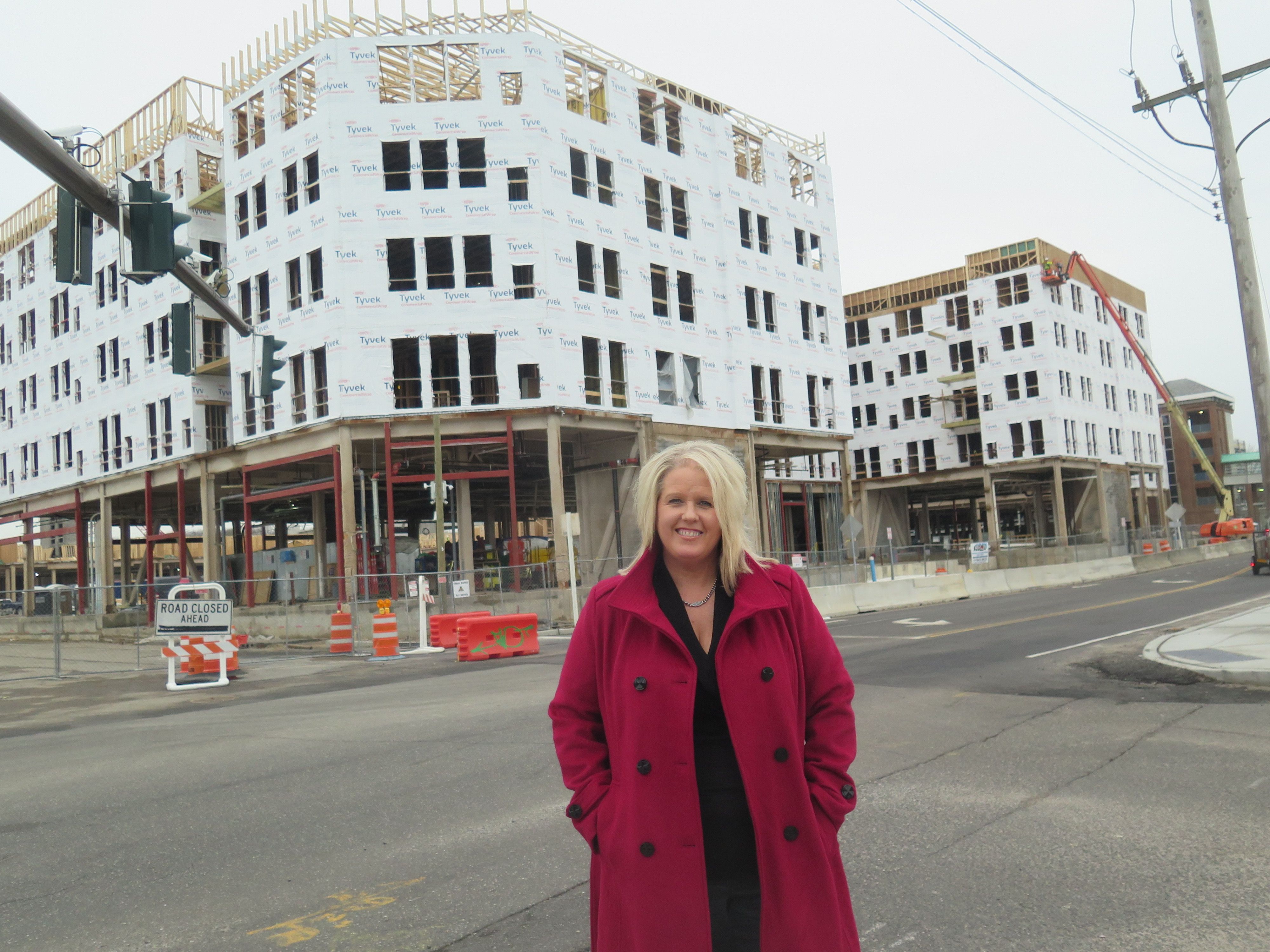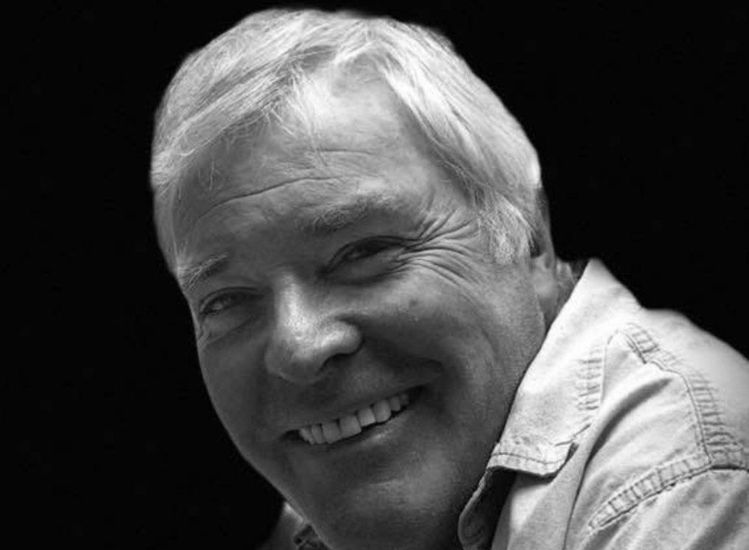Kathleen Murphy had a problem and her father had the solution.
The police officer was tapped young for the Suffolk County Police Department. It was for her, and still is 30 years on, the perfect job. She just didn’t get along with a lieutenant in the squad. Jim Murphy, an executive for Mobil Oil, said she should change to steady midnights – 9 p.m. to 7 a.m.
“Dad, I don’t know if I could do that,” she recalled saying to him in reply.
“I’ll never forget him sitting at the kitchen table: ‘Kathleen, you’re going to love the shift.’
“He was completely right,” Kathleen Murphy-Lubey said recently about her father’s advice.
And so, she has worked nights for 28 years. She patrols her sector in Babylon Village and West Babylon alone, though other patrol cars are never far away, if needed.
She started in 1993 in the 1st Precinct, which is where she met fellow officer James Lubey. They began dating in 1995 and were married in 2000.
By then he was alternating days and nights, the two-tour, and they were guaranteed some time off together.
The 9 p.m. to 7 a.m. shift for four consecutive days means four days off. So, for example, an officer who ends work on Tuesday morning is not due in again until Saturday night. This became important for Officer Murphy-Lubey when her husband first became ill about 10 years ago: it allowed her a flexibility with regard to doctor’s appointments.
James Lubey died last July. “I’m at the ‘anger’ stage,” she said of the grieving process, and is not quite ready to make the final decision about her future in the police department, although it is likely she will retire in July 2023.
“People loved him,” she said of her husband. Murphy-Lubey, who has no children, is close to his five siblings, whom she visited on New Year’s Eve. “They’re wonderful people. It’s a great family,” she added. (Their parents are deceased, as are both of hers.)
Murphy-Lubey, who will be honored at Friday night's 14th Annual Irish Law and Order Awards in Manhattan, was a senior at Iona College in New Rochelle when she scored high on the Suffolk County Police Department test. Much to her mother Marguerite’s relief, it didn’t mean that she would forgo taking her college degree. Fr. Joseph DeSanto of the Criminal Justice Department arranged for her professors to mail her coursework for the final few months, and she graduated from Iona while still in the police academy.
When at college, Murphy-Lubey liked the idea of a job in criminal justice, as long as it didn’t involve sitting behind a desk.
So, the opportunity for a 21-year-old Bellerose, Queens, resident to patrol the streets of Suffolk County was a hard one to pass up. “I saw my brother do it and he really enjoyed it,” she said of Danny Murphy, now retired from the SCPD. It was desirable from the point of view of pay and conditions, too. It wasn’t a tough call. But that was all in the abstract; did she like the reality in her first weeks?
“One hundred percent,” Murphy-Lubey remembered. “I was like – ‘This is the best thing I’ve ever done!”
And then, of course, she loved the nights, “If you had a car pursuit, it was a great pursuit because nobody was on the roads. If you had a bar fight, it was a great bar fight.”
An armed robbery at a 7-Eleven would mean that other 7-Elevens quickly needed to be checked.
“I enjoyed that in the beginning. I thought it was all fun. I found it exciting,” she added with a laugh. “School incidents during the day, and parades. I didn’t have do that. I got to do the fun stuff.”
But it wasn’t a chase or a robbery or indeed an incident involving any type of crime that stands out in retrospect as the signature event of her early years. Rather, that began as a 911 call about a “baby not breathing.”
It was a 2-year-old boy with a heart condition.
“I got to the house. I knew it was bad,” she said.
The young officer took the decision not to wait for the volunteer ambulance and rushed him to hospital with his father in the back of the patrol car.
Murphy-Lubey’s only subsequent contact with the family was to drop off a teddy bear at the hospital the next day.
“That’s one thing about patrol,” she said, “You don’t get a lot of follow up. You don’t know what happens to people.”
In this instance, the child died after two weeks in the hospital.
When James Lubey was seriously ill many years later, a visiting home nurse, noting from photos that this was likely a police home, asked his wife, “Are you a Suffolk cop?”
“I said, ‘Yeah,’” she recalled.
“Did you ever work in Deer Park?” was the nurse’s next question. Again, the answer was in the affirmative. “What’s your last name?” the nurse asked.
“When I said Lubey, she said, ‘Oh, you’re not Murphy?’”
“It was her son that I drove to the hospital,” Murphy-Lubey said.
The woman told her 25 years later, “We still talk about you to this day at the table. I became a nurse because of that.”
Seeing the police officer’s look of disbelief, she added, “You don’t understand. We weren’t ready. You gave us time. We got family in to say goodbye.”
Murphy-Lubey said, “You don’t think you make a difference.”
In that vein, she tells young officers that their demeanor and behavior should be appropriately respectful when a person dies.
Other than when there’s a DNR in place, police must be called for any death, whatever the circumstances or the age of the deceased.
“It’s just another call for you, but they will always remember that night,” she said of any family members and close friends present.
Losing her husband, her parents and her sister, who was 47 when she died in 2011, has given her empathy, she believes.
“I get it. I understand what they’re going through,” she said. “And that comes with age.
“The younger generation haven’t really lived. Neither had I. Now I have such a different perspective.”
While some officers, particularly those in leadership positions, stay the course for 40 years, many more leave after 20, and that, Murphy-Lubey believes, can mean a loss to the community in terms of acquired wisdom, human compassion and experience.
She believes also that the community at large should have respect and empathy for police in return. An officer, for instance, doesn’t get up in the morning with the intention of hurting anyone.
Over the years, Murphy-Lubey opted not to go into a specialized unit. She stayed with what she knew she was really good at.
These days, that’s working with Car 120. On patrol she is “old-school,” she said.
“My sector, it’s my call, my responsibility. I’m going to handle this,” the officer said. “I take a lot of pride in that. That nobody comes into my sector.”
Unless, of course, they’re asked.
“I have a lot of bars in my sector. I let them see me early on. Let them know that I’m around,” Murphy-Lubey said. “It’s good to have a steady sector, because you know the people in your sector and you know what’s going on.”
It means being aware of the bar that’s going to be the problem at 3:30 a.m. and the house with an issue with their neighbor.
Usually at 5:30 or 6 things start to wind down, and it’s “decompression time.” During the 10 hours, she won’t have closed her eyes once.
She’s not sure what she’ll do upon retirement, but she’s an extroverted person with an active social life. One part of that is the Emerald Society, which she joined her first year on the force. There was a time when the Irish connection was maintained mostly by childhood visits to her grandfather back in the Bronx, where she’d been born. Then John Murtagh, a Roscommon native who’d worked on the railroads in Manhattan, went to stay with the family in Queens in his last years.
The Emeralds make biennial trips to Ireland and that’s something she’ll continue to do. The next trip is in October; it will take in a favorite place, Kilkenny. Other places she recommends are Kinsale, where she has cousins on her father’s side, the Aran Islands and Galway City.
Before her husband’s illness, she said she would do 30 years and then retire. “That was our plan,” she said. The couple of months she took off following James’s death hasn’t changed that. Before too long for Murphy-Lubey, it will be 30 years and counting, and it’s looking like she’ll submit her papers in March, which would mean an end-date in the summer.
Her immediate superiors have encouraged her to stay on, saying that she’s not ready. She replies that she’s “tired,” although “a bit more settled” since her return, which was far from easy.
They’ve suggested that she be on the desk for a year or two. It’s nice to be wanted, but “no” is her answer to that. She became a cop so she wouldn’t be sitting behind a desk. It’s not for her.
Officer Kathleen Murphy-Lubey wants to go out in her patrol car.









